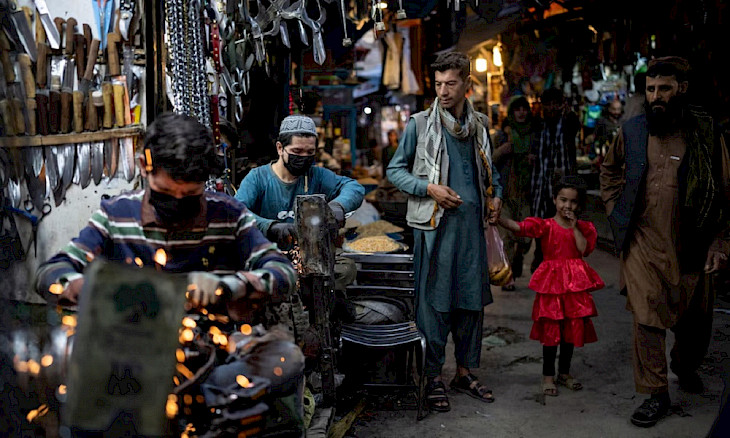The Afghan economy is showing signs of moderate growth, but still faces significant challenges, including fiscal constraints, trade imbalances, and a limited capacity for public investment, the World Bank (WB) said Wednesday, Ariananews.af reports.
According to the WB's latest Afghanistan Development Update, issued on Wednesday, “Afghanistan’s economic recovery remains uncertain”.
Modest GDP growth of 2.7%, driven by private consumption, has recouped only about 10% of past economic losses, indicative of the slow and fragile nature of the recovery, the WB said.
According to the organization, this level of growth has done little to address deeper structural issues and significant vulnerabilities within Afghanistan’s economy.
“Enabling women’s participation in the economy, strengthening domestic resource mobilization, maintaining price stability, and addressing critical deficits in human capital - particularly in education and healthcare, and especially for women - will be essential for long-term recovery and reducing vulnerability to future shocks,” the WB said in a statement.
Faris Hadad-Zervos, World Bank Country Director for Afghanistan said: “Afghanistan's long-term growth prospects depend on tapping into the substantial potential of the domestic private sector and improving the overall business environment.
“Key to this is increased investment, providing access to finance to small businesses, and supporting educated and skilled women entrepreneurs so their businesses can thrive. Without this, the country risks prolonged stagnation with limited prospects for sustainable development,” he said.
Meanwhile, the partial recovery, coupled with falling food prices, has contributed to a gradual improvement in household welfare.
But most Afghan households continue to struggle to meet basic needs and poverty remains widespread.
“Vulnerable groups, including women, children, and displaced populations, continue to bear the brunt of the economic hardship, due to the lack of social protection mechanisms,” the WB stated.
In addition, Afghanistan’s trade dynamics remain a significant challenge.
In 2023-24, the country’s exports remained stable, but imports surged, leading to a widening trade deficit, the WB reported.
The appreciation of the afghani (AFN) made imports cheaper, fueling demand for foreign goods, while domestic industrial activity revived, increasing the need for imported inputs.
However, the trade deficit, exacerbated by Afghanistan’s reliance on imports for essential goods like fuel, food, and machinery, might pose a risk to the country’s economic stability, the organization stated.
Meanwhile, Deputy Minister of Economy Abdul Latif Nazari said that Afghanistan's economy has a clear outlook and the current problems are caused by sanctions and the freezing of the country's foreign exchange reserves.
“Afghanistan's economic outlook is bright and hopeful. Some of the economic problems that exist are due to sanctions, banking restrictions and the freezing of assets of the Afghan people,” Nazari added.
“Our effort is to free the property of the people of Afghanistan as soon as possible and use it in line with the economic growth and development of the country.”
CentralasianLIGHT.org
December 6, 2024

